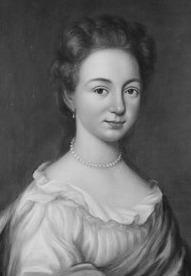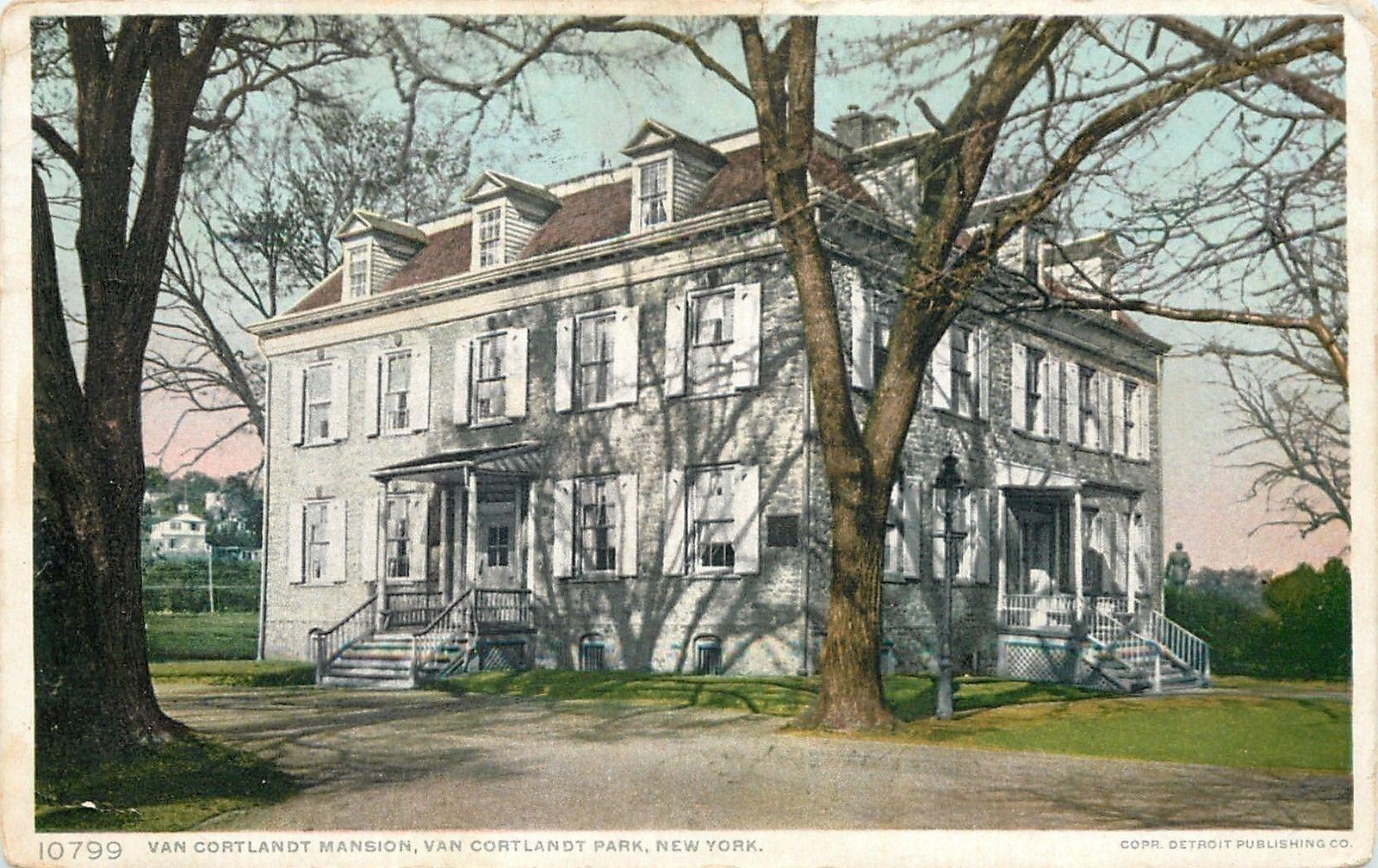Home › Forums › The Colonial Era › The Area Around the Van Cortlandt House in the 18th Century › Reply To: The Area Around the Van Cortlandt House in the 18th Century
…which brings us to the Van Cortlandt House. Rather than repeat what others have already written, I will post links to some of what’s out there:
An interesting but brief history was published by the Colonial Dames of the State of New York in 1903. It was written by Catharine Van Cortlandt Mathews and does not have citations:
https://archive.org/details/historicalsketch00math
Christopher Ricciardi’s excellent Masters Thesis of 1997 gives a history of the family and the property starting on page 21. Before that is an interesting overview of the property in the 19th Century. Starting on page 30 is an archeological analysis:
http://s-media.nyc.gov/agencies/lpc/arch_reports/95.pdf
Another great resource is H. Arthur Bankoff and Frederick A. Winter’s report on the excavations around the Van Cortlandt House, which focuses on the enslaved people that worked at the house.
https://www.jstor.org/stable/20853087
There certainly are many other articles and books that discuss the history of the house in detail. While I do have questions about the history of the property and the house, I will save those for later and instead report on the house as Katharine Farnham Hay saw it in 1778. By that time, the house was in the hands of Col. James Van Cortlandt (who retained the title of “colonel” despite not commanding regiments in any army). James Van Cortlandt lived there with his mother, Frances Jay Van Cortlandt. Ms. Hay’s writing can best be described as part journal, part letter. It is addressed to her sister but reads like a personal diary.
When the British army refused to allow her to proceed to New York City, her escort from the patriot camp, Colonel Henly (or Hendly), was ordered by the British to return to his camp. She was then forced to spend the night of May 10, 1778 in a shabby “publick house,” (possibly Cock’s Tavern) at today’s 230th Street and Broadway. Before leaving, however, Colonel Henly penned a letter addressed to James Van Cortlandt, “beging he wou’d take [Ms. Hay] under his protection, untill [she] could get admittance into York.” The next morning, Col. Emmerick of the British army showed up with permission for her to proceed to “Col. Cortlandts,”–AKA the Van Cortlandt House. She wrote a letter of her own asking James Van Cortlandt for the “Indulgence of his protection,” noting that she was “left without a Gentleman Servant or Carriage in a [P]ublick house, her Wretched feelings she can’t describe.”

Shortly thereafter, she “was surpris’d with a very pretty Horse, Mounted by a well dress’d Gentleman, rideing up to the Door. he dismounted came & aske’d for Mrs. Hay.” She writes “my heart leap’d for joy. I ran to receive him found him Brother to Col Cortland he receiv’d the Notes read them as his Brother was absent was so very kind as to procure liberty to Carry me to his House. this Gentleman told me he was unmarried liv’d with his Aged Mother who was very Sick if I cou’d make myself happy their I shou’d be very Welcome.”
This “well dress’d Gentleman” must have been Frederick Van Cortlandt II, brother of James, who had a home in the neighborhood at “Upper Cortlandts” near 238th Street and Broadway, I wrote a little bit about Upper Cortlandts here toward the bottom of the post. Apparently, Frederick was living in the Van Cortlandt House instead of his own home in order to look after his sick mother, who would pass away two years later in 1780.
She wrote that Frederick “made some excuse his not bringing a carriage with him, they were all in New York. I thought it an Idle Apology a Mile appear’d no more than a [Road].” After paying her bill, she “troted along at his side as Spry as a Sparrow as full of Chat as Magpie.” She continues “had you been by, you wou’d have suppos’d I had some design to have recommended myself (had not I have been married). after Walking a Mile we came to a most Elegant house…” She continues to describe the property in the words quoted in the previous post. She described Frederick Van Cortlandt’s home, “Upper Cortlandts,” as being “another Elegant Building belonging to the family.”
She writes on, “to this Hospitable Mansion I was Introduc’d. here the good Old Bachelor resided to take care of his Aged Mother & alleviate the insupportable weight of Old Age & disease. he led me into her bed Chamber there Sat the good old Lady [Frances Van Cortlandt] in her easy Chair, was very glad to See me but had got too far in her Dotage to be much of a companion. their was a very good kind of a Housekeeper & this Batchelor Mr Cortland is what you call a plain Man, a very tolerable figure, great Benevolence & Hospitality. from him I receiv’d great Civility & kindness in a very plain way (for he is no Courtier). I was quite happy spent a most agreeable Day.”
In the morning “in Come two Soldiers with written Orders for me to remove to Mount Morris at the Generals [John Vaughan] Quarters for further Orders.” This made Ms. Hay most uneasy until “Mr Cortland beg’d I woul’d not be uneasy he wou’d go with me. I thought him almost too good. just upon that in comes Col [Andreas] Emmerick. . . he gave leave that Mr. Cortland shou’d go with me. it was 6 Miles how shou’d we get a conveyance. they concluded to send for a Chair [or two wheeled carriage], as that is the common conveyance in this part of the Country. . . when the Chair came to the Door I confess I was mortified. I found some remains of pride, in short I can’t describe their kind of conveyance, if you recollect an Old Chair at Doctor Russells its more like that than anything I can think of.” Remember Frederick Van Cortlandt earlier said that his carriage was in New York, possibly with his brother James.
She met with General Vaughan in the Morris House at today’s Washington Heights. He told her that she would not have permission to proceed to New York City until her contacts there could verify her identity. He said “he wou’d have no Damn’d Smuggling work if the Damn’d Rebels wanted to get Intelligence it shou’d not be by Ladies.” She was ordered to return to the Van Cortlandt House with Frederick Van Cortlandt. She began to sink into despair but then James Van Cortlandt arrived:
This moment Summon’d to the parlour to see Col Cortland the Gentleman my Note was directed to, is just come from Town. I readily threw of my Reverie, run to the apartment, for he was a Gentleman I much wish’d to see. I found the family & Neighbours put great confidence in him. they were all wishing for him, they were Sure he cou’d do something for me, indeed the Neighbours seem’d to be much Interested in my Misfortune. they often came in to pity the poor Lady, & drop a tear of compassion over the wound they wanted the power to heal.
A couple of interesting notes about the neighborhood in the above passage: 1) That word spread relatively quickly among the neighborhood, perhaps emanating from the “publick house” where she first visited; and 2) that James Van Cortlandt was a man that the “Neighbours put great confidence in.”
Col Cortland received me very Genteelly, directly enter’d upon my Situation which was the reigning Topic in the Manor. he pour’d in the Balm of consolation, told me to be entirely easy. all things shou’d come right. he was well acquainted with the General. if my Intelligence was not agreeable the Next Day, he wou’d make Matters quite easy. we had quite a Social evening, I found him the Sensible agreeable companion. 10 OClock went to be had a fine Night.
May 13
At 8 OClock arose & Breakfasted. felt compos’d, enclineing to a fix’d Gloom, a burden to Chat, however Drag’d out the Morning with the Old Lady as well as I cou’d, Whilst her two Sons were amuseing themselves upon the farm. just before dinner, receiv’d permission from the General to remove into York with my Baggage, was to go to Col Emmericks quarters & not other person was to come with me. my new made friends rejoicd much at the Intelligence thought it very good & all my difficulties wou’d be soon over. Col Cortland said he wou’d go to Col Emmericks & give particular Orders to take good care of me, & procure me private lodgings until he cou’d find my friends. in a few days, he shou’d be in Town himself, if I then wanted any assistance he wou’d readily do anything in his power for me. I felt more gratitude for his kindness than I can express. . . after takeing a Glass of Wine, to Cheer up my Spirits & make the heart feell more joyous, Col Cortland & myself got into the Chair, the Curious York Vehicle that I mention’d before, with an Old Horse that cou’d but just draw this Pompous conveyance, he made a good many Apologies for the Horse as it was the only one that wou’d go in a Carriage he had out of the city. I was so Afraid of falling out, that I exerted all of my Strength, to hold myself in, we really laugh’d very hearty, by the time we got to Emmerick quarters, the Col then step’d out, & this Young Officer Step’d in. after very particular directions to the Young Officer, & his assuring them he wou’d do everything to Serve me, we proceeded to the City.
That is the extent of Ms. Hay’s interactions with the Van Cortlandts as recorded in the journal. It gives some idea of the character of Frederick and James Van Cortlandt, who come across as respectable and generous to Ms. Hay. I am curious if the “very good kind of a Housekeeper” that she describes was one of the four enslaved women that Frances Van Cortlandt describes in her will. I also wonder what the vehicle, which she calls a “chair” looked liked in light of her disgust of the sight of it. Frederick Van Cortlandt I, in his will, left a “two and four wheal chaise” to Frances. Possibly this was the same “chair.”
The journal raises questions as to the stance of this branch of the Van Cortlandt family during the revolution, a topic which always seemed somewhat murky to me, which I will address in the next post.